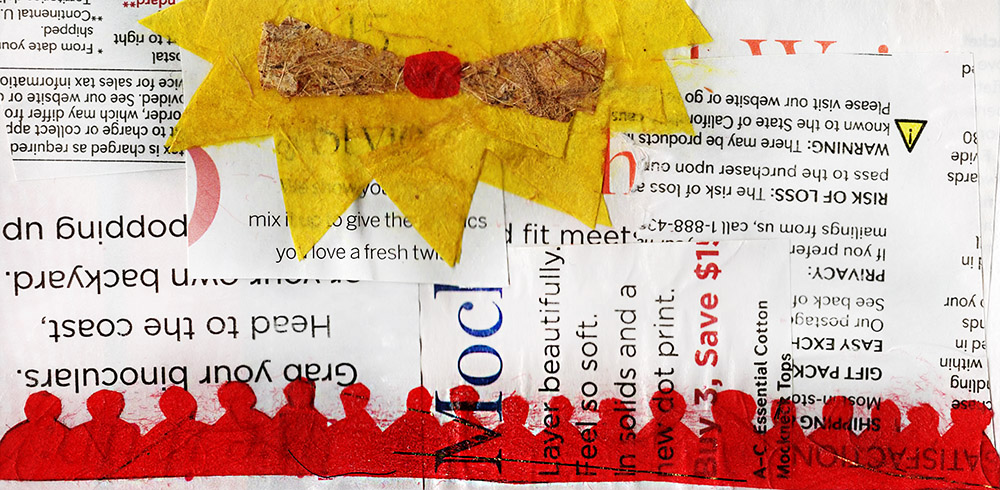On September 23, 1938, the government of Czechoslovakia — the modern-day Czech Republic and Slovakia — announced the general mobilization of its armed forces. Within five days, more than a million troops were armed and fighter planes, bombers, and tanks dispersed throughout the country. In the regions bordering Germany and Austria, the streets were barricaded, roads mined, railways destroyed, and fortifications reinforced. Major cities throughout the country were under blackout orders.
Since February, Hitler had been announcing his intentions to “protect” the Germans of Czechoslovakia, who were concentrated in the Sudetenland along the German and Austrian borders. Local Nazis, such as Konrad Henlein, had attempted to agitate these Sudeten Germans, but most Czechoslovaks understood Hitler’s offer of protection for what it was: justification to invade Czechoslovakia, just as he had invaded Austria in March. Some Austrians had greeted the Nazis with flowers; the Czechoslovaks were ready to greet them with lead.
But Czechoslovakia’s general mobilization would come to naught. On September 30, the government announced that it was forced to accept the Munich Agreement, in which its allies — Great Britain and France — had conceded to the Third Reich’s invasion of the Sudetenland. Less than a year later, World War II would begin.
In his latest book, The Bell of Treason, University of Cambridge historian P. E. Caquet details the history of the Munich Agreement. Caquet not only engagingly recounts Czechoslovakia’s betrayal by its supposed allies, but convincingly argues that the British and French would have saved themselves years of brutal war if they had stood by their commitments to Czechoslovakia and halted the Third Reich on their own terms — before having to face Hitler on his terms.
I recently spoke with Caquet about The Bell of Treason, Nazi propaganda, and the inevitability of war against the Third Reich. Our conversation below has been lightly edited for clarity and brevity.
Arvind Dilawar: What inspired you to re-examine the events leading up to the Munich Agreement? Why now?
P. E. Caquet: I have always wanted to tell the story of Munich, especially from the vantage point of the Czechoslovaks. It is the most interesting and the most poignant vantage point both because the Czechoslovaks understood best what was going on and because they stood in the very midst of the crisis. Czechoslovakia was where the drama was. Afterward, Czech and Slovak historians were prevented from telling that story themselves because they found themselves under Communist censorship for 40 years. This perpetuated false theories of defeatism and betrayal by the “bourgeois” republic of the interwar years. Actually the Czechoslovaks wanted to fight. They knew exactly what Hitler was up to. Yet they were unable to make the French and, especially, the British see the light. It makes for an extraordinarily tense and ultimately tragic story.
AD: The First Czechoslovak Republic was formed in the aftermath of World War I, from what were previously parts of the Austro-Hungarian Empire. Did the treaties of Saint-Germain-en-Laye, Versailles, or other post-war settlements contribute to the problems that the Munich Agreement supposedly solved?
PEC: First, I would like to clear the misconception that the post-Habsburg states were pure peace-treaty creations. These states benefited from Allied sanction during the last phases of the war and of rubber-stamping by the Versailles treaty. Their borders were finalized as part of the peace negotiations, and several of them benefited from allied military help. But these states actually arose, in late 1918, from the ashes of an economically bankrupt and militarily prostrate Austria-Hungary, usually as the result of popular revolutions and/or parliamentary takeovers. The idea that they were the creation of diplomatic diktat is misplaced. As to Czechoslovakia specifically, it was carved entirely out of Austria-Hungary. The Munich Agreement transferred a large part of it to Germany. One could not, therefore, remedy the other in the sense of reversing a situation created by the WWI peace treaties.
The Versailles Treaty, of course, was supposed to enshrine the idea of self-determination. Hitler played on this theme and on British guilt at the Versailles settlement. (The French felt no such guilt.) The idea was that the German-speaking population, the Sudeten Germans, were Germans and belonged in Germany. The case, however, was far from clear. Hitler himself, after Munich, did not acknowledge the existence of a historically and geographically defined Sudeten or Bohemian German community; the region was sundered and merged into neighboring German and Austrian provinces. Whether the Sudeten German considered themselves German rather than Bohemian — or “Czechoslovak Germans” as one writer put it — is meanwhile questionable at best. In the 1920s and ’30s, Sudeten Germans participated in Czechoslovak governments, where they held several ministerial portfolios. From the mid-1930s, a majority of them voted for a party, led by the activist Konrad Henlein, which ended up supporting Nazism. But whether they did so expecting Henlein to score political points for them within Czechoslovakia’s democratic system or whether they understood Henlein would lead them to annexation into the Reich is unclear. The anecdotal evidence is that many and probably most hoped things would not go as far as annexation.
Finally, even if we are to believe that a majority of the Sudeten Germans supported annexation, the Czechs and Jews living in these regions must be taken into account. If one factors them in, it becomes very unlikely that a majority ever existed, in the regions handed over to Germany at Munich, in favor of annexation. Perhaps conscious of this, Hitler always insisted, in the run-up to Munich, on a pure and simple, rather than a negotiated, transfer.

AD: A fascinating aspect of the history you document in The Bell of Treason is how Hitler and his allies in Czechoslovakia accused the Czech of repressing Germans in order to justify the German invasion of Czechoslovakia. To what degree were Germans in Czechoslovakia clamoring for the Third Reich’s “protection?” To what degree was this all a charade?
PEC: Henlein benefited from a substantial core of pro-Nazi supporters, many of them prepared to resort to violence. These people were aiming at integration within the Reich. Even among the Henleinist core, however, there had always existed a component favoring authoritarian politics within the Czechoslovak system. These people looked not to Nazi Germany, which they perceived as godless and alien, but to Catholic, authoritarian Austria. It was only when Germany annexed Austria in March 1938 that the Sudeten German political classes fell behind Henlein and his puppet master. As to the population at large: As explained above, its loyalties are hard to discern and probably fluctuated according to the diplomatic points scored and where the wind seemed to be blowing. Many Sudeten Germans, for example, understood that dissent in the German Reich meant being sent to a concentration camp and therefore did not want to risk being seen as opponents of Henlein if annexation was going to happen. Conversely, they feared war and were relieved after Munich.
As to any actual oppression by the Czechoslovak republic, of course, there was none. The Sudeten Germans had schools, German-language administrators, infrastructure and relief budgets, etc. — sometimes in greater proportion than in German administrative regions, such as Prussia. They were represented in parliament and government. The Czechoslovak government actually allowed Henlein to form a paramilitary guard, in 1938, which would wreak havoc in the Sudeten regions in the summer and in September 1938. If anyone was at risk of exactions, it was the Czechs living in these regions. This is not, however, what Nazi propaganda fed to the public or to the French and British negotiators.
AD: How successful was the Nazi’s anti-Czech propaganda on France and Britain? Did France and Britain actually believe Sudeten Germans were being oppressed? Or did they agree to appease Hitler simply in an attempt to avert war?
PEC: It is always difficult to generalize about what people may have thought, and one must differentiate between opinion at large and decision-makers. Several key British newspapers tended to support Henlein, notably the Times and Daily Mail. In France, newspaper coverage often tracked ideological alignment, with right-wing titles more likely to write benevolently about Henlein. But even ostensibly pro-Heinlein titles gave voice to reporters based in Czechoslovakia who were sympathetic to the Czech cause.
Nazi propaganda, including by Henlein, who traveled several times to Britain and was feted by the press, was largely successful, but not necessarily in the sense of convincing the French or British publics that the Sudeten Germans were being oppressed. What people perceived was that there existed a conflict situation with claims and grievances on both sides. The idea took hold that this must be a hard-to-resolve, age-old conflict. (Such superficial, false readings also took hold among Western publics over the Bosnian crisis and the Rwandan genocide, in the 1990s, with the same fateful consequences.) It was that much harder to mobilize opinion in favor of confronting Germany.
At the same time, detailed historical studies of opinions in both Britain and France have shown that these opinions were largely fluid. People understood that Nazi Germany was a dangerous and aggressive regime. They saw a fellow democracy in Czechoslovakia — or many did. This is where leadership could have come in, clearly designating Czechoslovakia as the underdog and the Reich as an aggressor to be resisted. Here, finally, there were differences between Britain and France. The French were skeptical of Henlein’s claims and cared little besides. Straightforward cowardice was at work, rather. The British were more prone to give credence to tales that the Sudeten Germans were being oppressed, in particular, because they often saw things in terms of race, with separate German and Czech “races.”

AD: In The Bell of Treason you argue that not only Czechoslovakia, but its allies France and Britain, would have benefited from standing firmly against the Third Reich, rather than conceding to Hitler with the Munich Agreement. What is the calculus behind that argument?
PEC: That calculus rests on three observations. First, the diplomatic configuration was awful for Germany. The Soviet Union had made it very clear it would fight on the side of the Czechoslovaks (whilst in 1939, it participated in the invasion of Poland as an equal partner to the Nazis). Yugoslavia and Romania acted as guarantors against Hungary, and ultimately as hostile countries to Germany. Even Poland, a French ally, stood as a possible, even likely, participant against the Reich. Germany was entirely isolated.
But the Reich was also militarily unprepared. In 1938, the French army on its own remained larger than the German land forces. Czechoslovakia and France together could align divisions outnumbering the Wehrmacht two-to-one. The Germans, moreover, lacked the tanks with which they would pierce the French front in 1940. The panzers they had were the type I and II, not the heavier types III and IV they later began to produce. One statistic speaks for itself: The Wehrmacht crushed the French army in May 1940 by massing panzer divisions together and punching a hole through the front; a third of these tanks came from Czechoslovakia.
Finally, the Luftwaffe was also unprepared. It lacked reserves, raw materials for replenishing ammunition and aircraft, and close enough airfields from which to reach England. This is key because a common myth is that Chamberlain bought time at Munich for the British air defenses, making the heroic Battle of Britain possible in the summer of 1940. Actually there is no scenario, with war beginning in September 1938, in which Germany could have launched an air assault on Britain before summer 1940 anyway. There are many scenarios, however, under which Germany would have been defeated before that date.
AD: Should France and Britain have been willing to support Czechoslovakia against the Third Reich, do you imagine a different diplomatic solution, one more favorable to Czechoslovakia, would have emerged? Or was war inevitable?
PEC: There could be no diplomatic solution. Historians have shown, based on captured Nazi archives, that Hitler was not bluffing. It was surrender or war. •




